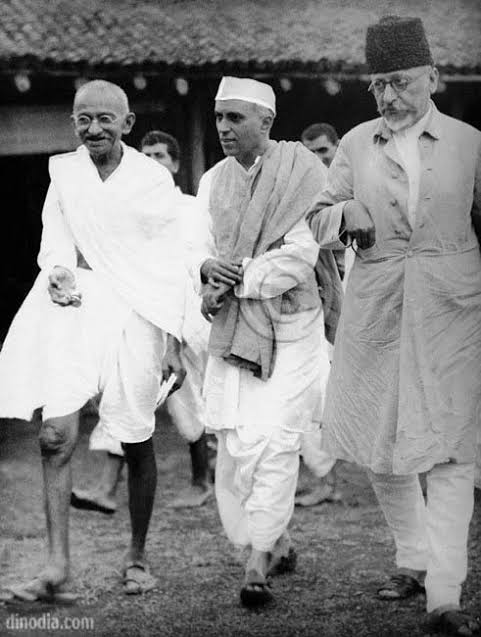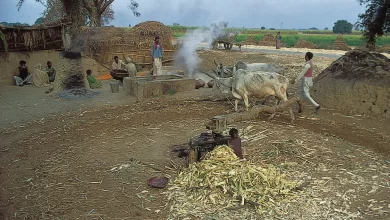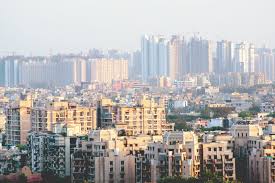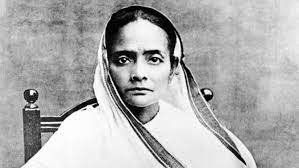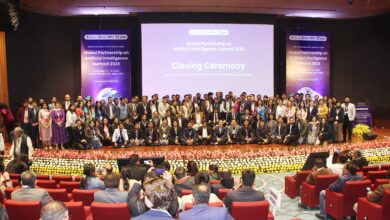The Dawn of Freedom: Nehru’s Tryst with destiny and Gandhi’s Peace Mission
Siby K Joseph
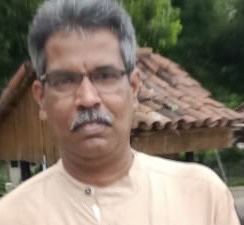
On August 14, 1947 Jawaharlal Nehru in his eloquent speech asked the Indians to embrace the newfound freedom and work towards a brighter future. His “Tryst with destiny” speech marked the midnight transfer of power from British colonial rule to Indian independence. His famous lines still echo when we celebrate the independence from the British colonial yoke. He said “Long years ago we made a tryst with destiny, and now the time comes when we shall redeem our pledge, not wholly or in full measure, but very substantially. At the stroke of the midnight hour, when the world sleeps, India will awake to life and freedom.”. Referring to Gandhi’s dream he said: “The ambition of the greatest man of our generation has been to wipe every tear from every eye. That may be beyond us, but so long as there are tears and suffering, so long our work will not be over. And so we have to labour and to work, and work hard, to give reality to our dreams. Those dreams are for India, but they are also for the world.” Paying tribute to the Father of the Nation he said “On this day our first thoughts go to the architect of this freedom, the Father of our Nation, who, embodying the old spirit of India, held aloft the torch of freedom and lighted up the darkness that surrounded us. We have often been unworthy followers of his and have strayed from his message, but not only we but succeeding generations will remember this message and bear the imprint in their hearts of this great son of India, magnificent in his faith and strength and courage and humility.” He also cautioned against religious divisiveness. “All of us, to whatever religion we may belong, are equally the children of India with equal rights, privileges and obligations. We cannot encourage communalism or narrow-mindedness, for no nation can be great whose people are narrow in thought or in action.” Mahatma Gandhi was not present in Delhi at the dawn of independence. On the eve of independence he was in Calcutta, working hard to calm communal tensions and promote peace among warring religious communities.
Mahatma was not in mood to celebrate the transfer of power from British colonial rulers to Indians . In a Speech at Prayer Meeting in New Delhi on July 27, 1947 Gandhi said “Only when there is no poison in our hearts can we genuinely celebrate August 15 as Independence Day”. His whole effort during those days was to remove the position of communalism from the minds of the people. He was very much aware of the harsh realities the independent India had to face. On August 8, 1947 in a prayer meeting in Patna, Gandhi said “The 15th is the day of our trial. Observe a fast on that day. Everyone should do his duty. No one should create any disturbance. The independence we are going to get is not of the kind we can celebrate by having illuminations. We do not have foodgrains, clothes, ghee or oil. So where is the need for celebrations? On that day we have to fast, ply the charkha and pray to God.” On August 9, Gandhi arrived in Bengal and stayed at Sodepur Ashram. He was on his way to Noakhali. Taking note of the precarious communal situation in Calcutta he cancelled his Noakhali trip for the time being and decided to shift to the riot torn area of Kolkata in Beliaghata. Gandhi announced that he would embark on a peace mission with H. S.Suhrawardy who was head of the Bengal provincial government and both would stay under the same roof. Gandhi moved to Hyderi Manzil in Beliaghata on 13th August, 1947. He had to face angry demonstrations of Hindus with black flags shouting ‘Go Back Gandhi’. At the Prayer Meeting in Beliaghata, Calcutta, August 14, 1947 Gandhi invited everyone to have twenty-four hours’ fast and prayer during the day for the well-being of India as a whole and pass it in spinning as much as possible. He was convinced that if Calcutta returned to sanity and real friendship, then Noakhali and the rest of India would be safe. While Nehru’s speech celebrated the dawn of independence, Gandhi’s mission highlighted the challenges and responsibilities that came with freedom. Both events showcase the contrasting yet complementary approaches of these two Indian iconic figures.
In his letter to Agatha Harrison on the eve of independence “You know, my way of celebrating great events, such as today’s, is to thank God for it and, therefore, to pray. This prayer must be accompanied by a fast, if the taking of fruit juices may be so described. And then as a mark of identification with the poor and dedication there must be spinning. Hence I must not be satisfied with the spinning I do every day….”Gandhi congratulated both Hindus and Muslims meeting together in perfect friendliness on the occasion of independence in Kolkata . Muslims shouted the same slogans of joy as the Hindus. Gandhi’s presence created a miracle and they flew the tricolour without having even the slightest hesitation in the city. What was more significant , the Hindus were admitted to mosques and Muslims were admitted to the Hindu mandirs.
Gandhi himself wrote about it on August 16. “We occupied the house on Wednesday the 13th instant and on the 14th it seemed as if there never had been bad blood between the Hindus and the Muslims. In their thousands they began to embrace one another and they began to pass freely through places which were considered to be points of danger by one party or the other. Indeed, Hindus were taken to their masjids by their Muslim brethren and the latter were taken by their Hindu brethren to the mandirs. Both with one voice shouted “Jai Hind” or “HinduMuslims! Be one”. When we celebrate the eve of independence we should not focus on the horrors of partition but celebrate Hindu-Muslim unity, promote the spirit of equality, and highlight the richness of Indian all inclusive culture India cherished in all these years. Keeping this in mind a National Seminar on Quest for Peace and Inclusive India was organised by Probhodha Trust Kochi in association with Sevagram Ashram Pratishthan, Wardha and a number of prestigious colleges in Kerala commemorating Hiroshima and Nagasaki and Quit India Movement on August 8, 2024. In furtherance of this goal on the eve August Kranti Din Sevagramashram Pratishthan, Wardha organized a musical concert, titled “Idea of India in Cinema Music,” which featured renowned singer and activist Amarendra Dhaneshwar from the Gwalior family. The event was organized to rekindle the spirit of unity, love, and tolerance that defined India’s freedom struggle. The message of Sevagram Ashram on the eve of 78th independence day is the idea of inclusive India that Nehru’s Tryst with destiny and Gandhi’s Peace Mission aimed at through distinct ways.
About the author
Dr. Siby K. Joseph is Director, Sri Jamnalal Bajaj Memorial Library and Research Centre for Gandhian Studies,
Sevagram Ashram Pratishthan, Sevagram,Wardha– 442102, Maharashtra
Email: directorjbmlrc@gmail.com

